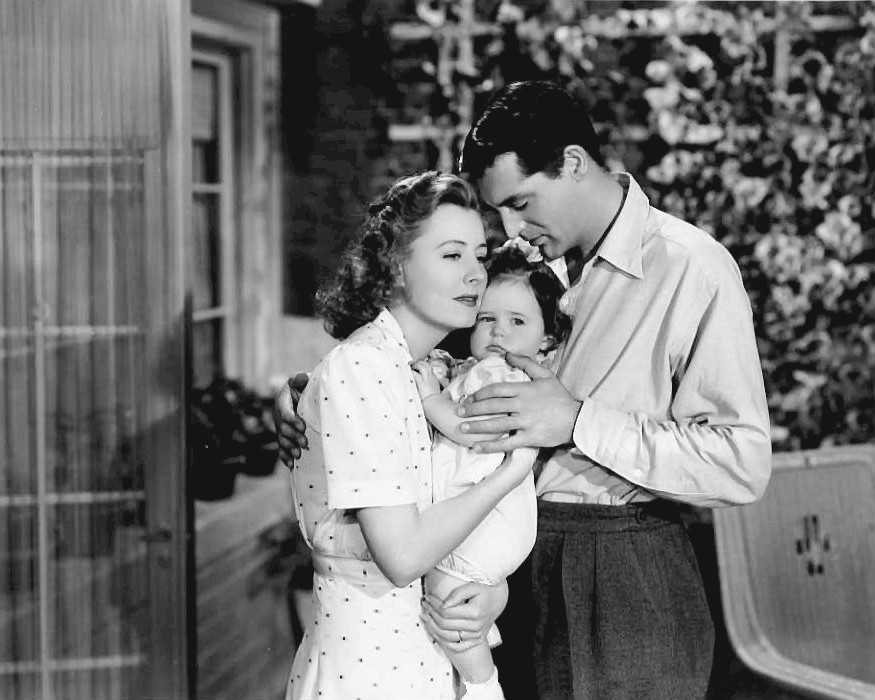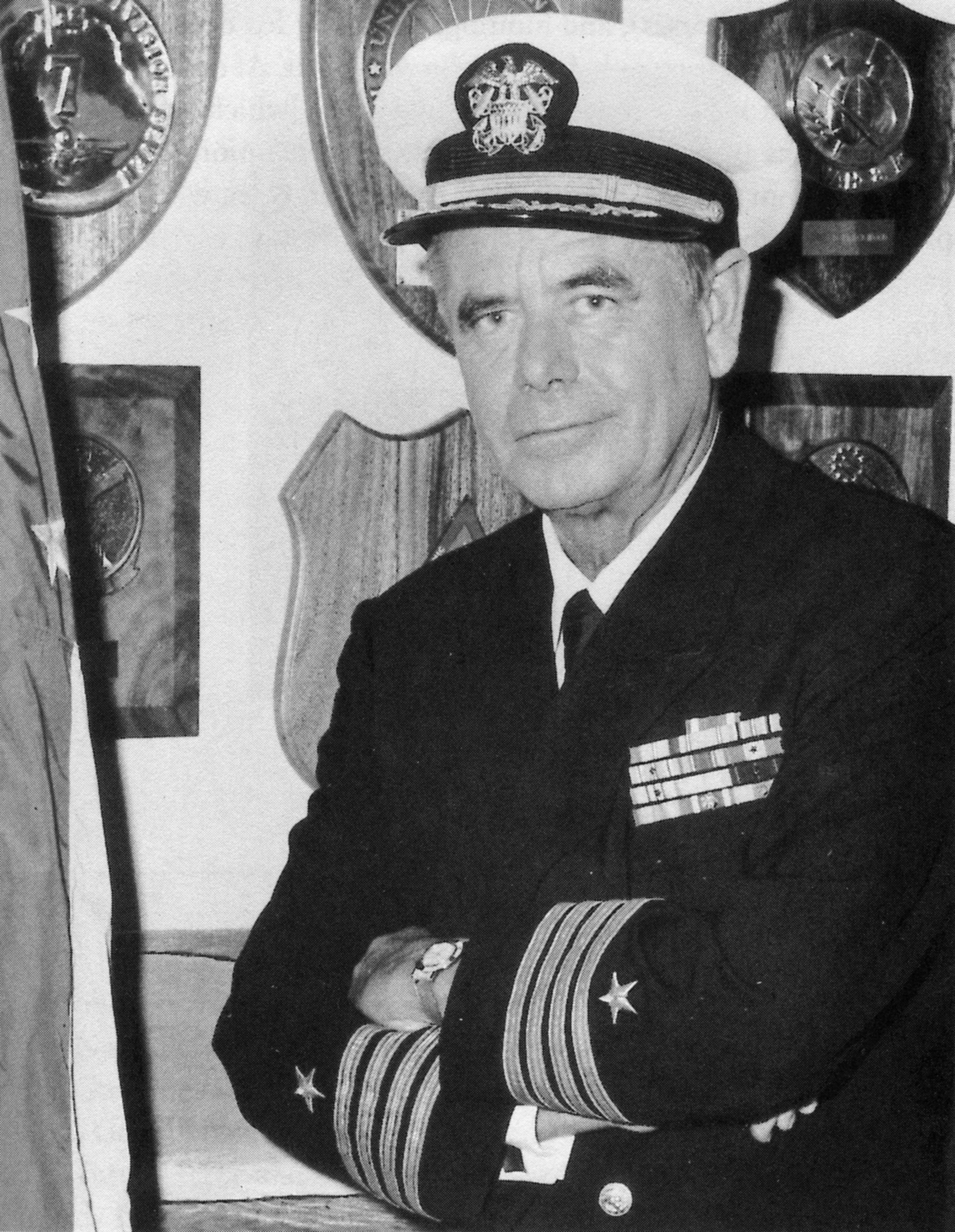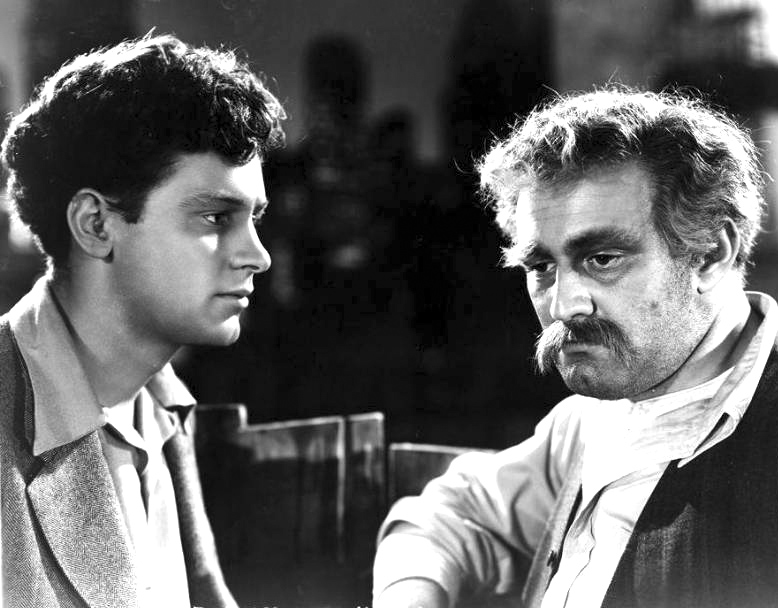|
Edgar Buchanan
William Edgar Buchanan II (March 20, 1903 – April 4, 1979) was an American actor with a long career in both film and television. He is most familiar today as Uncle Joe Carson from the '' Petticoat Junction'', '' Green Acres'', and '' The Beverly Hillbillies'' television sitcoms of the 1960s. Biography Early life Edgar Buchanan was born to Rose (Kee) Buchanan and William Edgar Buchanan Sr., DDS in Humansville, Missouri. He moved with his family to Oregon when he was seven. His father had a dental practice in Eugene, Oregon, and encouraged his son to follow suit. Buchanan Senior didn't approve of his son's acting ambitions and pushed him to pursue dentistry instead. According to authors Arden and Joan Christen, Edgar's father believed "to choose a career in the theater was to settle for a life of mediocrity and uncertainty". Nevertheless, Edgar took courses in theater at the University of Oregon as a pre-med student, and was part of a Portland acting troupe in graduate school. H ... [...More Info...] [...Related Items...] OR: [Wikipedia] [Google] [Baidu] |
Humansville, Missouri
Humansville is a city in Polk County, Missouri, United States. As of the 2020 census, the city population was 907. History Humansville was named after an American settler, Judge James G. Human, who settled in the area in 1834. A post office called Humansville has been in operation since 1839. During the Civil War, a skirmish was fought on the town's outskirts on March 26, 1862, in which approximately 300 to 400 Missouri Confederates under Col. James M. Frazier of Cedar County clashed with two companies of pro-Union Missouri State Militia. Casualties were few, but Col. Frazier was himself mortally wounded, which caused the Confederates to retreat. The George Dimmitt Memorial Hospital was listed on the National Register of Historic Places in 2012. Geography Humansville sits on Brush Creek and the line of the old Kansas City, Clinton and Springfield Railway. It is northwest of Bolivar, the seat of Polk County. According to the United States Census Bureau, the city has a t ... [...More Info...] [...Related Items...] OR: [Wikipedia] [Google] [Baidu] |
Altadena, California
Altadena () is an unincorporated area, and census-designated place in the San Gabriel Valley and the Verdugos regions of Los Angeles County, California. Directly north of Pasadena, California, Pasadena, it is located approximately from Downtown Los Angeles. Its population was 42,846 at the 2020 census, up slightly from a 2010 figure of 42,777. In early 2025, the community was severely impacted by the Eaton Fire. History Etymology The name Altadena was coined by Byron O. Clark, who established Altadena Nursery in 1875. The name combines the Spanish language, Spanish alta, meaning 'upper,' with dena, a term he likely adapted from Pasadena, California, Pasadena, though its precise origin remains unclear. The area is adjacent to, but at a higher elevation than, Pasadena.Manning, Mike. The word Altadena was first used by Byron Clark, who coined it for his nursery located south of present-day Woodbury on the west side of town. When he moved his nursery to Linda Vista, he agreed to ... [...More Info...] [...Related Items...] OR: [Wikipedia] [Google] [Baidu] |
The Man From Colorado
''The Man from Colorado'' is a 1948 American Western film directed by Henry Levin, produced by Jules Schermer for Columbia Pictures, and starring Glenn Ford as a Union officer who becomes addicted to killing during the American Civil War, William Holden as his best friend, and Ellen Drew as their common love interest. Robert Andrews and Ben Maddow based the screenplay on a story by Borden Chase. Although Ford received top billing as the mentally ill villain, Holden's role as the sympathetic hero is slightly larger. Levin replaced Charles Vidor during filming. Plot Union Colonel Owen Devereaux (Glenn Ford) orders his regiment to fire on a detachment of Confederate soldiers, even though he (and only he) has seen that they are signaling their surrender with a white flag. Immediately after the battle, the soldiers learn the war has ended. As they celebrate, Sergeant Jericho Howard ( James Millican) drinks while on duty, and Devereaux has him arrested. Later, the mayor anno ... [...More Info...] [...Related Items...] OR: [Wikipedia] [Google] [Baidu] |
Jean Arthur
Jean Arthur (born Gladys Georgianna Greene; October 17, 1900 – June 19, 1991) was an American film and theater actress whose career began in silent films in the early 1920s and lasted until the early 1950s. Arthur had feature roles in three Frank Capra films: '' Mr. Deeds Goes to Town'' (1936) with Gary Cooper, '' You Can't Take It with You'' (1938) co-starring James Stewart, and ''Mr. Smith Goes to Washington'' (1939), also starring Stewart. These three films all championed the "everyday heroine", personified by Arthur. She also co-starred with Cary Grant in the adventure-drama '' Only Angels Have Wings'' (1939) and in the comedy-drama '' The Talk of the Town'' (1942). She starred as the lead in the acclaimed and highly successful comedy films '' The Devil and Miss Jones'' (1941) and '' A Foreign Affair'' (1948), the latter of which she starred alongside Marlene Dietrich. Arthur was nominated for an Academy Award for Best Actress in 1944 for her performance in '' The More the ... [...More Info...] [...Related Items...] OR: [Wikipedia] [Google] [Baidu] |
Ronald Colman
Ronald Charles Colman (9 February 1891 – 19 May 1958) was an English-born actor who started his career in theatre and silent film in his native country, then emigrated to the United States where he had a highly successful Cinema of the United States, Hollywood film career. He starred in silent films and successfully transitioned to sound, aided by a distinctive, pleasing voice. He was most popular during the 1920s, 1930s and 1940s. He received Oscar nominations for ''Bulldog Drummond (1929 film), Bulldog Drummond'' (1929), ''Condemned (1929 film), Condemned'' (1929) and ''Random Harvest (film), Random Harvest'' (1942). Colman starred in several classic films, including ''A Tale of Two Cities (1935 film), A Tale of Two Cities'' (1935), ''Lost Horizon (1937 film), Lost Horizon'' (1937) and ''The Prisoner of Zenda (1937 film), The Prisoner of Zenda'' (1937). He also played the starring role in the Technicolor classic ''Kismet (1944 film), Kismet'' (1944), with Marlene Dietrich. In ... [...More Info...] [...Related Items...] OR: [Wikipedia] [Google] [Baidu] |
Cary Grant
Cary Grant (born Archibald Alec Leach; January 18, 1904November 29, 1986) was an English and American actor. Known for his blended British and American accent, debonair demeanor, lighthearted approach to acting, and sense of comic timing, he was one of Classical Hollywood cinema, classic Hollywood's definitive leading man, leading men. He was nominated twice for the Academy Award for Best Actor, Academy Award, received an Academy Honorary Award in 42nd Academy Awards, 1970, and received the Kennedy Center Honor in 1981. He was named AFI's 100 Years...100 Stars#List of 50 greatest screen legends: Top 25 Male and Top 25 Female stars, the second greatest male star of the Golden Age of Hollywood by the American Film Institute in 1999. Grant was born into an impoverished family in Bristol, where he had an unhappy childhood marked by the absence of his mother and his father's alcoholism. He became attracted to theatre at a young age when he visited the Bristol Hippodrome. At 16, he ... [...More Info...] [...Related Items...] OR: [Wikipedia] [Google] [Baidu] |
Irene Dunne
Irene Dunne (born Irene Marie Dunn; December 20, 1898 – September 4, 1990) was an American actress who appeared in films during Classical Hollywood cinema, the Golden Age of Hollywood. She is best known for her comedic roles, though she performed in films of other genres. After her father died when she was 14, Dunne's family relocated from Kentucky to Indiana. She was determined to become an opera singer, but when she was rejected by Metropolitan Opera, The Met, she performed in musicals on Broadway theatre, Broadway until she was scouted by RKO and made her Hollywood film debut in the musical ''Leathernecking'' (1930). She later starred in the successful musical ''Show Boat (1936 film), Show Boat'' (1936). Dunne starred in 42 movies and was nominated five times for the Academy Award for Best Actress—for her performances in the western drama ''Cimarron (1931 film), Cimarron'' (1931), the screwball comedies ''Theodora Goes Wild'' (1936) and ''The Awful Truth'' (1937), ... [...More Info...] [...Related Items...] OR: [Wikipedia] [Google] [Baidu] |
Penny Serenade
''Penny Serenade'' is a 1941 American melodrama film directed by George Stevens starring Irene Dunne and Cary Grant as a loving couple who must overcome adversity to keep their marriage and raise a child. It was produced and distributed by Columbia Pictures. Grant was nominated for the Academy Award for Best Actor for his performance. Plot The film charts the meeting, courtship and marriage of Julie Gardiner (Irene Dunne) and Roger Adams (Cary Grant) through the playing of popular songs relevant to each time period. After their spur-of-the-moment marriage on New Year's Eve and a night in Roger's train compartment en route to San Francisco, a pregnant Julie rejoins Roger in Tokyo, where he has a stint as a reporter. Julie loses their unborn child in the 1923 Great Kantō earthquake, 1923 Tokyo earthquake and returns with Roger to California. They are despondent until their friend Applejack Carney (Edgar Buchanan) encourages them to adopt a child. While Roger struggles to keep a n ... [...More Info...] [...Related Items...] OR: [Wikipedia] [Google] [Baidu] |
Glenn Ford
Gwyllyn Samuel Newton Ford (May 1, 1916 – August 30, 2006), known as Glenn Ford, was a Canadian-born American actor. He was most prominent during Classical Hollywood cinema, Hollywood's Golden Age as one of the biggest box-office draws of the 1940s, 1950s, and 1960s, and had a career that lasted more than 50 years. Ford often portrayed ordinary men in unusual circumstances. Although he starred in many genres of film, some of his most significant roles were in the film noir, films noir ''Gilda (film), Gilda'' (1946) and ''The Big Heat'' (1953), and the high-school drama ''Blackboard Jungle'' (1955). For comedies and Westerns, though, he received acting laurels, including three Golden Globe Award nominations for Golden Globe Award for Best Actor – Motion Picture Musical or Comedy, Best Actor – Motion Picture Musical or Comedy, winning for ''Pocketful of Miracles'' (1961). He also played a supporting role as Superman's mild-mannered alter ego Clark Kent's adoptive farmer fa ... [...More Info...] [...Related Items...] OR: [Wikipedia] [Google] [Baidu] |
William Holden
William Franklin Holden (né Beedle Jr.; April 17, 1918 – November 12, 1981) was an American actor and one of the biggest box-office draws of the 1950s. He won the Academy Award for Best Actor for the film '' Stalag 17'' (1953) and the Primetime Emmy Award for Outstanding Lead Actor in a Limited or Anthology Series or Movie for '' The Blue Knight'' (1973). Holden starred in some of Hollywood's most popular and critically acclaimed films, including ''Sunset Boulevard'' (1950), '' Sabrina'' (1954), ''Picnic'' (1955), '' The Bridge on the River Kwai'' (1957), '' The Wild Bunch'' (1969) and '' Network'' (1976). He was named one of the " Top 10 Stars of the Year" six times (1954–1958, 1961), and appeared as 25th on the American Film Institute's list of 25 greatest male stars of Classical Hollywood cinema. Early life and education Holden was born William Franklin Beedle Jr. on April 17, 1918, in O'Fallon, Illinois, son of Mary Blanche Beedle (née Ball), a schoolteacher, an ... [...More Info...] [...Related Items...] OR: [Wikipedia] [Google] [Baidu] |







